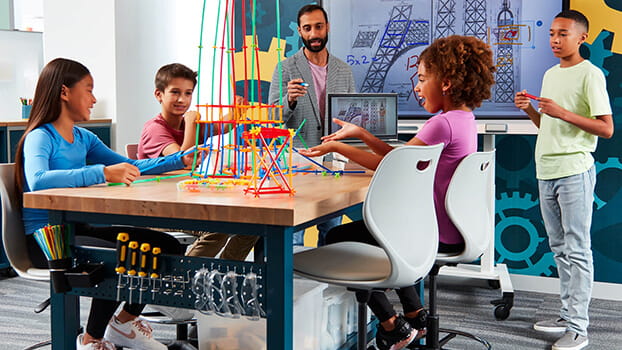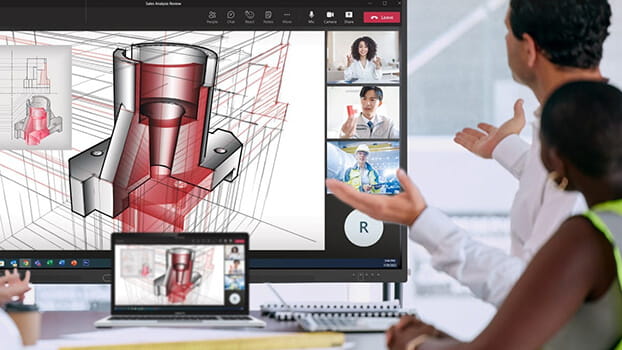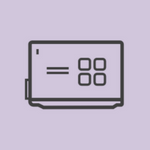In the media today: CISION PRNewswire releases: SMART Technologies study finds that educators reporting high levels of development across a combination of areas including tools, training, family involvement, and student support were seven times more likely to observe strong student outcomes. Go straight to the release.
New Global Survey Finds Majority of Schools Changing Approach to Social and Emotional Learning in the Midst of Pandemic
CALGARY, AB, Sept. 29, 2020 /PRNewswire/ -- SMART Technologies—the education technology company with a 30-year track record of pioneering learning solutions that encourage student collaboration and engagement—has released the results of a global survey designed to highlight lessons from schools' early 2020 transition to remote learning. While teachers and administrators reported a hurried shift to remote learning and doubt over the effectiveness of remote instruction, 58% of educators said their schools were changing their approach to social emotional learning, recognizing the additional stress facing learners today.
In the survey, educators were asked to rate their schools' level of readiness for remote and blended learning across ten areas such as parent involvement, student engagement measurement, teacher remote instruction training, and student device and internet support.
The analysis of those results, "Remotely Ready: Global Insights Into Effective Teaching and Learning in a Pandemic," found that participants who rated their schools as the most prepared across the areas were seven times more likely to also report effective remote online learning for students.
Building school capacity across all ten of these areas was shown to be strongly tied to effective student outcomes," said Giancarlo Brotto, Director & Global Education Advisor, SMART Technologies. "We continue to work with educators around the world to intelligently integrate SMART Learning Suite Online and our other products into their schools as part of their comprehensive, holistic approach to readiness for blended/hybrid or fully remote instruction."
Among other findings:
- Schools had to pivot lightning-fast to online instruction. For schools that did go remote, 64% resumed instruction in one week or less, while 36% of educators reported it took two weeks or more to resume instruction remotely.
- Educators were more positive about their teaching than student learning. Overall, 24% of educators rated remote online teaching as "extremely" or "very" effective, while 16% rated remote student learning as "extremely" or "very" effective.
- There is a student disconnect in decision making. Students were nearly four times less likely to be involved in planning or implementation decisions for remote online instruction than were their parents or caregivers.
- Good remote instructional content is still a work in progress. When asked about how comprehensive their remote instructional content efforts were, 20% responded their schools "completely" had a significant body of curriculum and other types of content for remote delivery, 9% said "not at all," and the rest were evenly split at the in-between "somewhat" and "mostly" stages.
- When it came to parent involvement, 9% of educators said their students' parents or caregivers were not engaged in remote online learning at all, while 42% said parents were "mostly" or "completely" involved.
- Less than half, or 42%, of respondents said their school supplies devices to all students, and provides internet hotspots or alternative connectivity options for students without suitable home broadband access.
The "Remotely Ready" survey was conducted online in July 2020. More than 65% of respondents were from the U.S. Seven in ten were teachers, with the balance having administrator or other school- or district-level roles.
The ten remote readiness areas—called "capabilities" in the survey—were parent involvement, student involvement, disability and ELL student support, remote content, SEL approach, student engagement measurement, teacher remote instruction training, student device and internet support, administrative remote tool access, and remote security and privacy approach. In addition, respondents self-rated teaching and learning effectiveness.
Schools and districts interested in discovering their stage of edtech development—and how they can prioritize work and investment for better learning outcomes—can take a more extensive self-evaluation of education technology capabilities tied to best practices at www.smarttech.com/profile. Upon completion, participants receive a free profile with useful recommendations for benchmarking and planning.
The full Remotely Ready report is now available for download.
About SMART Technologies Inc.
SMART is a world leader in education technology, providing interactive solutions to help every person discover and develop the greatness within them. A consistent innovator for over 30 years, SMART is the inventor of the SMART Board® and the developer of SMART Notebook®, the world's most popular collaborative learning software, and part of the SMART Learning Suite. With their full range of interconnected displays, software, and accessories, used by millions in education and business, SMART helps students, colleagues and teams around the world connect in meaningful ways.




